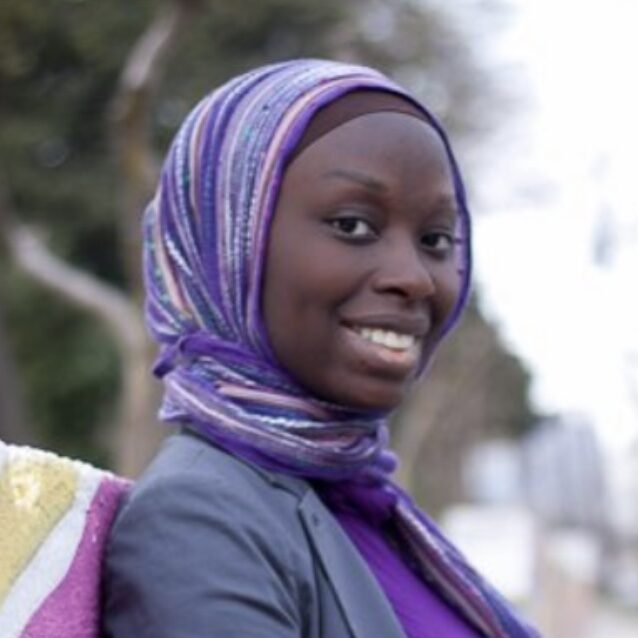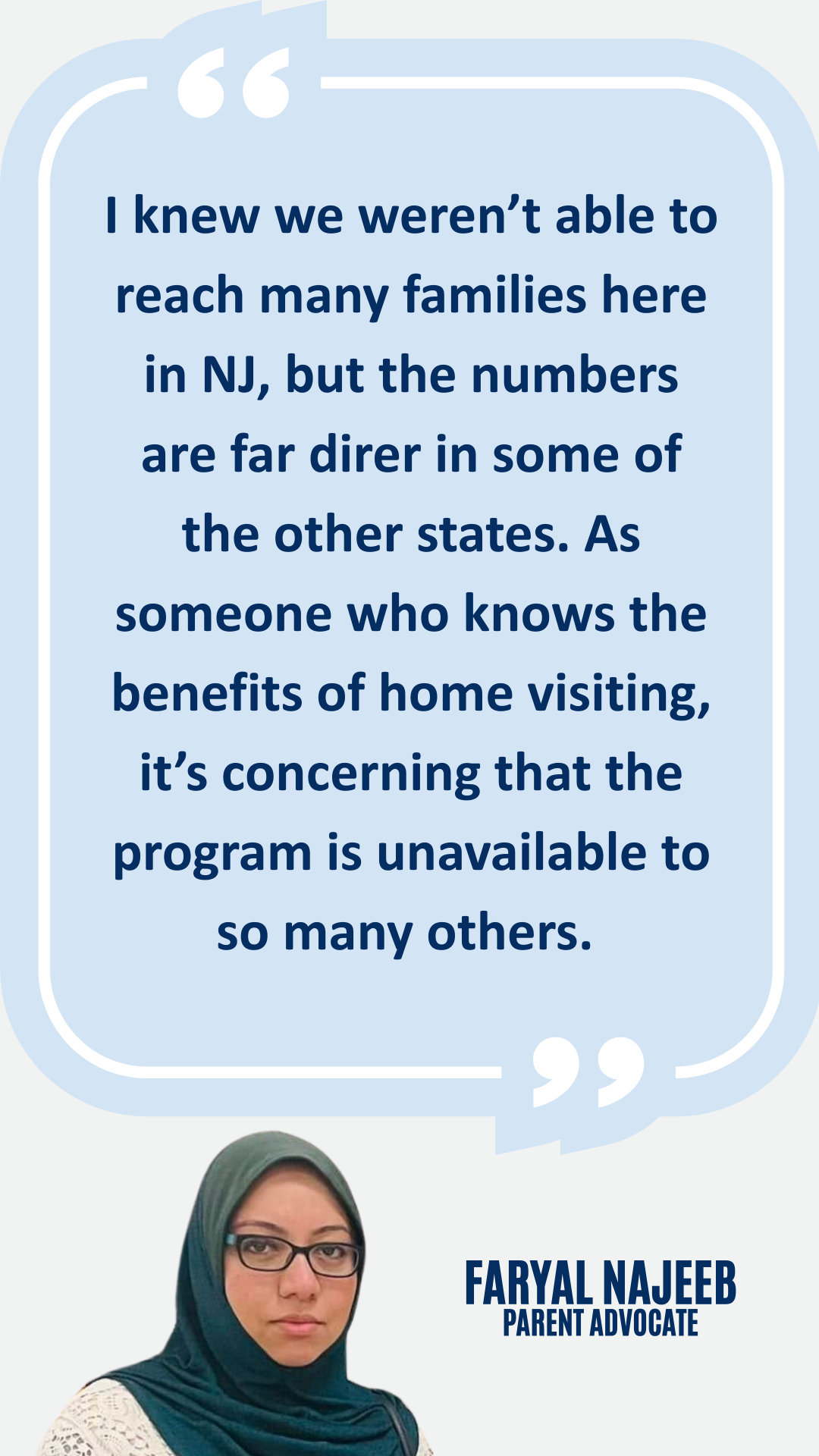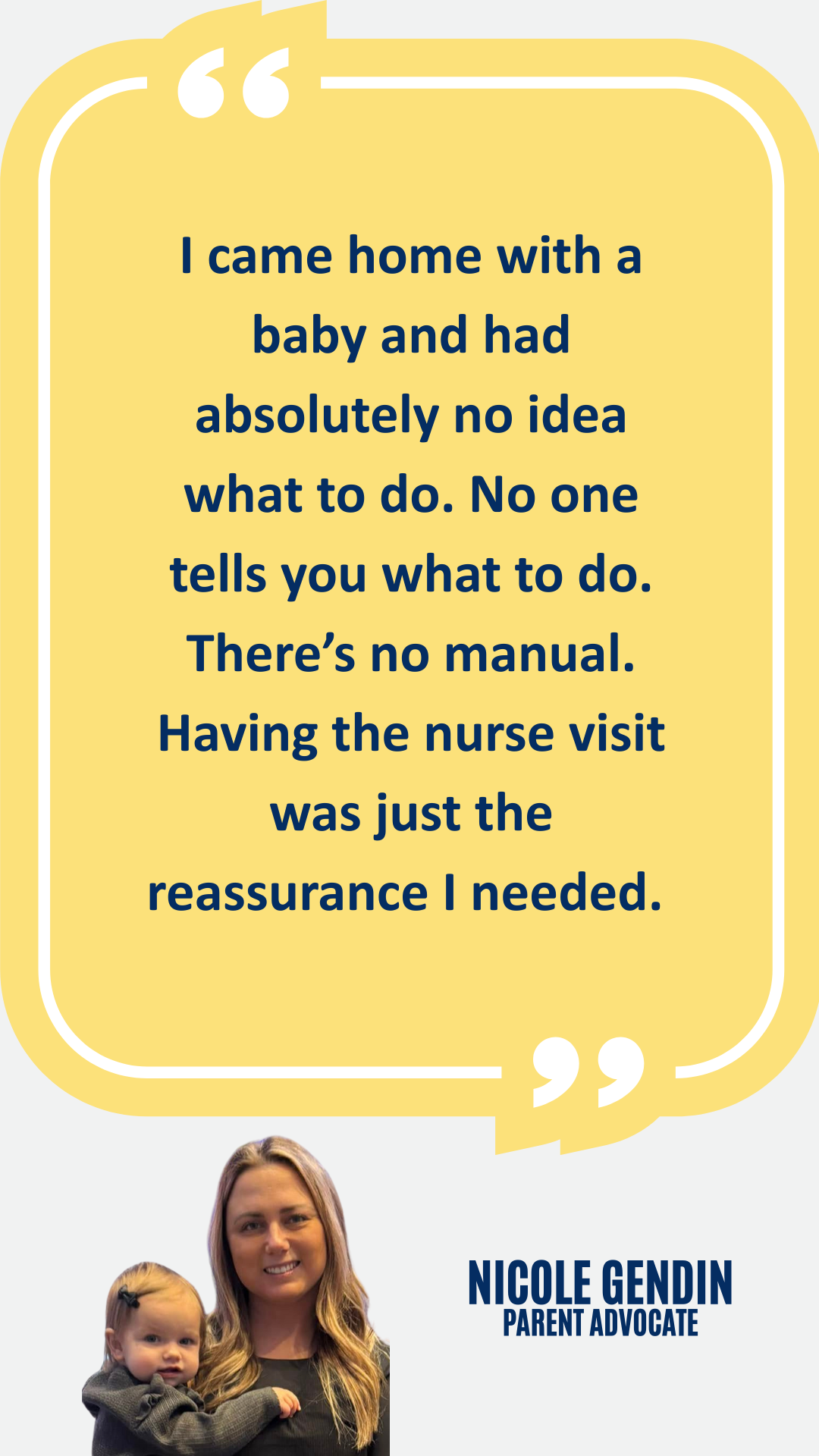Posted on April 1, 2025
What’s New?
Tamil’s Story: Tapping into community resources to build resilience
Posted on March 25, 2025
This is video 3 of the Y.E.S. (Youth Expert Stakeholders) video Series.
Many children grow up with adverse experiences, but community resources can help kids and teens build resilience to survive them. Listen as Tamil discusses his experiences and how he developed his resilience in the face of adversity.
Did you know Early Head Start offers home visiting too?
Posted on April 25, 2025

By Habibah Johnson
Co-Chair, ACNJ Parent Leadership Council (PLC)
For more information on home visiting, contact Senior Policy Analyst Diane Dellanno at ddellanno@acnj.org.
The Unsung Role of Head Start in Home Visiting
Classrooms filled with eager young children, preparing for their journey into school – this is what people often picture when thinking of Head Start. But one of Head Start’s most powerful and often overlooked components happens to take place outside the classroom, right in the homes of families. Home visiting, a core element of Early Head Start – a program of Head Start specifically for infants and toddlers under the age of three, their parents, and pregnant women – has been transforming lives for decades, yet it remains a lesser-known part of the program.
As Bonnie Eggenburg, President of the New Jersey Head Start Association, explains, "Home-based Early Head Start has always been about the idea that parents are their child’s first and most important teacher." Unlike traditional home visits, where an educator simply engages with a child, these visits focus on empowering parents with tools and strategies to support their child’s development.
Early Head Start home visitors don’t just arrive with lesson plans; they bring support, guidance, and connection. They help parents navigate the challenges of early childhood, from handling toddler tantrums to fostering early language development. "It’s not a home visitor going in and playing with the child for 90 minutes," Eggenburg explains. "It’s the home visitor going in and talking with Mom about how things are going, giving her strategies, and helping her engage in activities with her child that she may not have thought of before."
This approach is particularly critical during the first three years of life – when brain development is at its peak. Many parents, especially those in underserved communities, may not realize how much simple, everyday interactions, like narrating daily routines or playing peek-a-boo, contribute to their child’s cognitive growth. "We help parents understand the importance of talking with their child, even about the simplest things like changing a diaper or making breakfast," says Eggenburg. "It builds language skills and strengthens bonds."
Despite its success, Head Start’s home-based model has seen a decline in recent years. "From 2010 to 2024, the number of home-based slots in New Jersey dropped from 46% to just 17%," Eggenburg notes. Much of this shift is driven by economic realities. With more parents working full-time jobs, home visits aren’t always feasible. Some families also hesitate to invite educators into their homes, fearing judgment or exposure of personal struggles.
Yet, Head Start continues to adapt. Even families enrolled in center-based programs benefit from at least two home visits a year, allowing teachers to better understand each child’s home environment. "Going into a home where you see real-life challenges, like a family struggling with housing conditions, helps us tailor support for both the child and the parent," Eggenburg shares.
One of the most valuable aspects of Head Start’s home visiting model is the community it fosters. In addition to one-on-one visits, parents often gather for group sessions, creating informal support networks. "They develop relationships with other parents who are going through the same experiences," says Eggenburg. "That sense of community is so important."
Unfortunately, awareness of these services remains a challenge. Many parents learn about Early Head Start home visiting through word of mouth rather than formal outreach. "We do social media advertising and networking, but a lot of parents don’t hear about us until they already have a child," Eggenburg notes. Expanding awareness could ensure that more families access these critical early childhood resources when they need them most, enhancing outcomes for both children and parents.
While home visiting may not be as visible as classroom-based learning, its impact is undeniable. It strengthens family bonds, supports child development, and fosters resilient communities. But as Eggenburg emphasizes, the program needs continued investment. "We need to recognize that Early Head Start has been doing this work for decades and should be at the center of conversations about early childhood education."
For families who want to give their children the best possible start, Head Start’s home visiting program offers something invaluable: partnership. A partnership between parents and educators, built on trust, support, and a shared commitment to a child’s future.
Let’s bring more attention to the incredible work happening in the homes of families across New Jersey.
From Personal Stories to Policy Change: NJ Parents Advocate for Home Visiting Programs
Posted on March 25, 2025

By Habibah Johnson
Co-Chair, ACNJ Parent Leadership Council (PLC)
For more information on the Parent Leadership Council, contact acnjplc@acnj.org.
Last month, Advocates for Children of New Jersey and a team of New Jersey home visiting advocates traveled to Washington, D.C. to attend the National Home Visiting Summit, a multi-day conference dedicated to advancing the field of home visiting. Among the many voices present were two passionate NJ parents, Faryal Najeeb and Nicole Gendin, who shared their personal home visiting experiences with our Congressional Delegation.
Faryal Najeeb has been a long-time advocate for home visiting programs, inspired by the support she received from a Nurse-Family Partnership program when she was pregnant with her first child. As an active member of ACNJ’s Parent Leadership Council (PLC), she recognizes the power of personal storytelling in influencing policymakers.
"I have shared my story many times over the years because I realize that personal experiences and ‘putting a face’ to where the funds are going, make a difference," she shared.
Her advocacy has earned much attention and support from NJ legislators and their staff, who strongly recognize the importance of home visiting programs. However, in meeting with the congressional delegation during this year’s trip to the Capitol, Faryal was struck with a distinct feeling.
"I could feel the difference in the Capitol – there is tension and concern regarding potential cuts to social programs, especially Medicaid. The conversation wasn’t just centered around home visiting programs and funding, but also broader social issues. My voice mattered 100%, but there was also a shift in focus to larger concerns at hand."
Beyond advocacy, the summit provided Faryal with valuable insights into home-visiting programs across the country. She learned about indigenous home visiting programs and the funding challenges many states face. Even though the Maternal, Infant, and Early Childhood Home Visiting (MIECHV) program is not up for reauthorization until 2027, it is important to keep our representatives apprised of how home visiting is supporting families and what is needed to expand accessibility.

"I knew we weren’t able to reach many families here in NJ, but the numbers are far direr in some of the other states. As someone who knows the benefits of home visiting, it’s concerning that the program is unavailable to so many others. Attending the conference this year and last year renews my passion to advocate more and more so that we get the funding we need to make the program more accessible!"
For Nicole Gendin, advocacy was never something she imagined pursuing. Her journey into home visiting began when a friend, who was also a nurse, introduced her to the newly launched Family Connects NJ initiative, a program that provided support to first-time mothers.
"I came home with a baby and had absolutely no idea what to do. No one tells you what to do. There’s no manual," she recalled. "Having the nurse visit was just the reassurance I needed. She measured the baby, checked if she was getting enough milk, and helped me with breastfeeding. I even ended up with carpal tunnel from holding the baby wrong, and they helped me with that too."

As Nicole prepared to return to work, the nurse and a lactation consultant guided her through pumping and scheduling, which provided not just logistical support but also mental reassurance.
When her friend invited her to advocate in D.C., Nicole had no idea what to expect.
"I had no idea that you can even do that—that as common folk, we could just go down there and talk to legislators. It was eye-opening to see how many people are working all day, every day, and how they actually sat down and listened to us. One of the representatives we spoke to was from my own district, and as soon as they realized they were speaking to one of their constituents, they really paid attention."
Both parents walked away from the summit with a renewed understanding of the impact of home visiting programs and a reinforced sense of the importance of continued advocacy. For Nicole, the experience underscored the reality that genuine issues require genuine solutions, and that advocacy is a powerful means to create change.
“Hearing other parents’ stories was really touching. These are real people with real problems, and there are ways to be proactive and address these challenges before they escalate."
While Faryal is a seasoned advocate, Nicole is just beginning her journey. When asked if she would continue advocating, Nicole expressed her openness to learning more.
"It was something I never thought about until I had this experience. But now, knowing that we have a voice and can speak to our legislators about real issues, I would be open to learning more and seeing what I could do to help."
The National Home Visiting Summit provided both parents with invaluable experiences—whether it was reaffirming their commitment to advocacy or opening new doors to engagement. Their voices, and those of countless other parents, are essential in ensuring that home visiting programs receive the funding and recognition they deserve.
To learn more about the Parent Leadership Council or how you can become involved in advocacy, contact acnjplc@acnj.org.
Highlights of Governor Murphy’s Proposed FY2026 Budget which Impacts Children and Families
Posted on March 13, 2025
On February 25, 2025, Governor Murphy delivered his final state budget address, highlighting his "commitment to building a New Jersey that is stronger, fairer, and more prepared for the future.”
Read the State of NJ Budget in Brief
Proposed Investments for Children and Families:
- Preschool expansion: Increase of $34.6 million, of which $10 million will be devoted to expanding preschool into new districts
- High impact tutoring: Increase of $7.5 million in new grants to support districts offering high-impact tutoring to students in need of extra academic support.
- Paid family leave: Increase of $10 million to provide State employees with full pay while they take family leave to care for a newborn, newly adopted, or newly fostered children.
- Universal home visiting: Increase of $12.7 million for the newborn home nurse visitation program.
- Family planning and reproductive health: Increase of $52 million for family planning and reproductive health services, including a new incentive program for OB/GYNs who want to move to New Jersey.
- Maternal and Infant Health Innovation Authority: $3.2 million for the newly created Maternal and Infant Health Innovation Authority.
However...
- Food security: A reduction of $9.1 million in state expenditures for food security.
- State income tax credits for children: No increase in the Child Tax Credit or the Child and Dependent Care Tax Credit.
Tell State Lawmakers What Needs to be Included in NJ's FY2026 Budget
The Senate Budget and Appropriations Committee and the Assembly Budget Committee will be conducting their respective public hearings. Sign up below by clicking on the date you wish to participate. Remember, you can submit written testimony as well!
Senate Budget and Appropriations Committee
Wednesday, March 26, 2025 at 10:00 AM
New Jersey Institute of Technology Campus Center Atrium
150 Bleeker Street
Thursday, April 10, 2025 at 10:00 AM
This hearing will be conducted remotely without the possibility of in-person attendance.
Assembly Budget Committee
Wednesday, March 19, 2025 at 9:30 AM
State House Annex, Committee Room 11, 4th Floor
145 W. State Street, Trenton, NJ
Tuesday, March 25, 2025 at 9:30 AM
State House Annex, Committee Room 11, 4th Floor
145 W. State Street, Trenton, NJ

